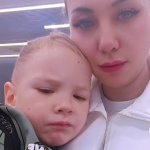Anxiety and Its Types in Autism
Almost everyone has experienced anxiety — a physiological response to potentially dangerous situations that helps plan actions. Anxiety shows various signs and symptoms, which can be psychological (difficulty concentrating, worry, fear), physiological (excessive sweating, increased blood pressure and muscle tone), or behavioral (irritability, anger, unwillingness to socialize).
The functioning of this system is highly individual. People with autism spectrum disorders (ASD) display unique characteristics, with anxiety becoming even more intense and unpredictable compared to neurotypical individuals. For autistic people, anxiety triggered by similar causes as in others is distinguished by its intensity, scale, and unpredictability. Even ordinary worries can lead not to normalized behavior but to worsened stress and nervous breakdowns. Suppressing anxiety may cause sudden behavioral changes even when there is no apparent reason for the reaction.
The problem lies in the fact that autistic individuals perceive the world and react to stimuli differently. Their emotional expressions can be more intense and “misunderstood” by others who don’t recognize the causes of anxiety. This may manifest as self-harming behavior, aggression, or withdrawal into an “inner world.” Additionally, sensory system dysfunctions can cause behavioral responses that do not match the actual situation. Research shows about one-third of autistic individuals of all ages exhibit increased anxiety. The more frequently a child shows excessive worry—often caused by an inability to express feelings or desires—the greater the need for support.
Calming medications may mask the symptom but do not cure it. Cognitive-behavioral therapy, social stories explaining how to behave in certain situations, or cognitive restructuring may require significant time and effort. Establishing a predictable daily routine—especially with visual supports—and strictly following it can help instill stability, though adapting to such a schedule may be challenging, particularly for younger children.
Any form of excessive anxiety in autism can be managed if its triggers are correctly understood. However, suppressing symptoms only masks the problem, while the main goal—eliminating the underlying disorder causing anxiety and other issues—remains unachieved. The only method currently capable of effectively addressing autism and its symptoms is stem cell therapy, an innovative approach known for its reliability and rapid positive impact compared to other interventions.
This therapy involves transplantation of stem cells, which can transform into any cell type and replace damaged cells with healthy ones. This leads to normalization of brain and nervous system functions, eliminating pathological anxiety and reducing or removing other autism symptoms. The effects of the procedure are long-lasting, often lifelong, enhancing the effectiveness of other corrective measures.
Stem cell therapy, once considered experimental, is now widely recognized and may become the primary treatment for autism and its consequences. It is used by leading clinics worldwide that offer the facilities for this high-tech procedure. Among them is the Mardaleishvili Medical Center, staffed by highly qualified specialists with extensive successful experience in stem cell transplantation. The use of cutting-edge equipment helps achieve the best therapeutic outcomes. Additionally, treatment costs in Georgia are lower than in other countries with comparable healthcare standards. Importantly, comprehensive support is available for travel planning and other needs, including accommodation during rehabilitation.
Stem cell therapy — a chance to overcome unwarranted anxiety!
Autism Treatment Center Videos
Autism treatment with own stem cells
Cord blood association congress
International Quality Crown
Autism Treatment Reviews
Autism treatment with own stem cells
The story of Alessandro (6 years old)
Autism Patient Testimonial - Stem Cell Treatment
Clients Testimonials

Lidiya — Elina’s mother Read More

Anna – Sasha’s mother Read More

Amirkhon’s father — Tokhir Read More

Dilana’s mother Read More

Irina and Stefan – Ilya’s parents Read More












